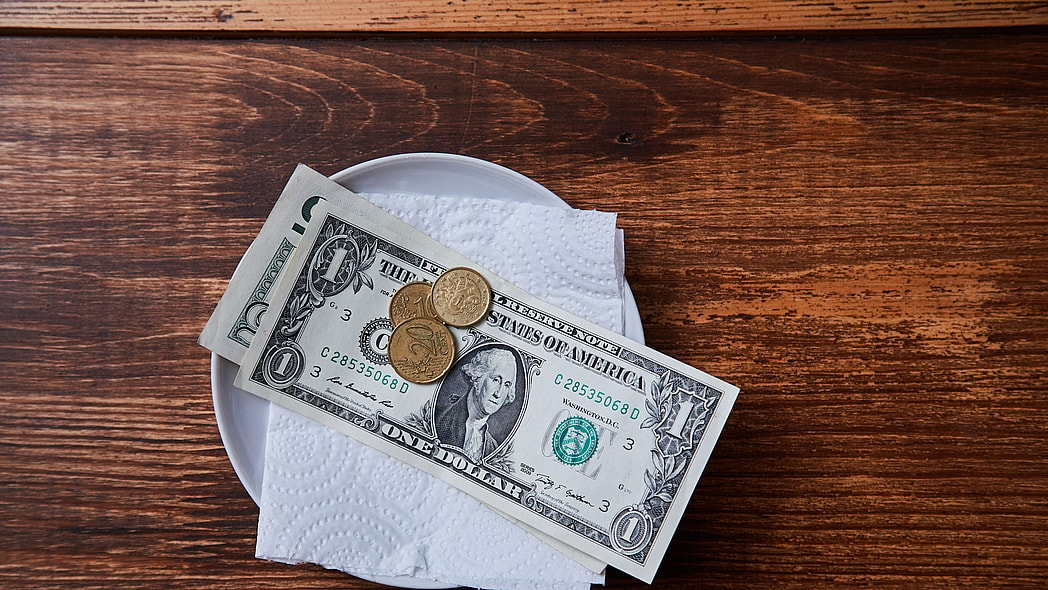Editor’s note: The following article is an op-ed, and the views expressed are the author’s own. Read more opinions on theGrio.
There’s a debate that’s been raging on my Twitter timeline (@toure) for several days, and I need to get some thoughts out that aren’t in bite-sized pieces. When you go out to eat and get served by a person, and you don’t have to cook or clean, you should tip 20 percent. Period. I wouldn’t think this would be a massively controversial statement in 2022, but it is. Oh, the many arguments that were thrown at me to counter that simple statement! Allow me to knock some of them down.
I am sympathetic to restaurant workers because I worked in restaurants when I was a youngin’ in New York City. I was a food runner and then a barback in a couple of cool places in Manhattan—a tipped employee who knew the drudgery of showing up at 5 p.m. to clean glasses and silverware as well as the thrill of walking home at 4 a.m. with several hundred dollars in my pocket, happy to be paid though a little nervous about getting robbed as I walked back to my tiny apartment.
Restaurant workers work hard—those shifts often lasted 10-12 hours, and it was a blur of running around the place filling a never-ending flurry of requests and making sure diners, servers, bartenders and managers were happy. You could always get fired at a moment’s notice, so you were always a little nervous, and you always had to keep the theatrical aspect of the restaurant experience going while chaos reigned just behind the proverbial curtain.
If your server is late to refill your water or bring you bread, it’s not because they’re in the back chilling on their phone. It’s probably because there’s an emergency with another table or something happened in the kitchen, or another server is in the weeds and needs a little hand because someone else didn’t show up.
In most places, servers share their tips with other workers who help them—bartenders, runners, barbacks, table cleaners. In some places, all the servers pool tips and divide them equally. When you tip less than 20 percent, you’re not just hurting your particular server, you’re penalizing almost everyone in the restaurant. Black people are the majority of the tipped service industry, so when you tip less than 20 percent, you’re most likely hurting some Black people who make less than minimum wage. You’re punching down. And things have been rough on that group in recent years—according to a 2021 survey of over 4,000 restaurant workers, during the pandemic, Black restaurant workers got less in tips than other racial groups. They say their tips declined by 50 percent or more, and they’re treated worse by customers. You really want to be a part of that?
The No. 1 reason people have given me for wanting to tip less than 20 percent—or, rather, deserving to tip less—is retaliation for “bad service.” Few people are willing to quantify what bad service means, and I know that in the last 20 years of going to restaurants, I have to struggle to think of a time when I got bad service in a restaurant. Every once in a while, it takes time for your food to arrive, but that’s about the kitchen being busy or screwing up an order; it’s not the server. Sometimes they may not swing by to refill your water or your bread often enough. OK, but that’s not bad service.
Once at a fancy place, the server came to our table to introduce herself, then suddenly stopped, shook her face like she was about to cry and quickly walked off. What was that, we wondered? But, my friend, we were not so arrogant as to think it had anything to do with us. She came back five minutes later, said a quick sorry, and then led us through a lovely meal without further incident. It was a rough start, but she completely recovered.
Look, most servers don’t love their jobs, no one dreams of growing up to wait tables, but they definitely want to keep them, and I promise you, the house is watching them, and the manager’s standard for good service is higher than yours. The notion that there are just bad servers who are out here just hating on customers is silly. (And trust me, servers are dealing with a lot more bad customers than diners are dealing with bad service.) But more than that, tipping should not be a response to the service. It’s not a grade you give the server to tell them how they did. By logic, if you undertip for “bad service,” you should overtip for great service, which diners get far more often, right?
In my Twitter debate, I heard over and over that “tips” stands for “To Insure Proper Service.” It does not. First, tip is a word, not an acronym. Second, “To Insure Proper Service” is a backronym—people made that up after the word was popularized. Also, the proper word would not be “insure” it would be “ensure,” so the whole thing makes no sense.
But the notion of the tip as some carrot/stick that the diner holds over the server to ensure that they get good service is a gross classist nightmare. You think it’s appropriate to give this poorly paid adult a little more or less money based on how well they performed for you? That so recalls the out-of-touch wealthy throwing pennies at the poor if they danced fast and smiled brightly and projected obsequiousness.
Being an adult means using your words—if you have a real complaint about the service, speak to the manager and explain what’s going on. I know the house would rather have the chance to make it up to you, so you walk out happy instead of stiffing the staff. Unless the server called you out of your name, your complaint will not cost them their job, and unlike you, the manager knows the server, the extenuating circumstances and the challenges of the job. I think it’s an abuse of the power of tipping and the restaurant allowing you to choose how much to weaponize it to silently tell the server you didn’t like something. You withheld $4 because they didn’t smile enough or didn’t run back to your table enough? Gross.
Many people say they’re generous tippers because they want to beat back a pervasive stereotype that Black diners are bad tippers. I have heard about this stereotype for decades, and I have no idea if it’s true, but I’m not going to overtip to disprove it. That, to me, is a bit too white-centric—they think I’m going to be a bad tipper, so I’ll prove them wrong. I don’t move through the world thinking about how white people will view me and trying to respond to that—I don’t wear whiteness goggles. I do what I think is right, and tipping 20 percent is the right thing to do. If anything, I think about the Black people who might be receiving my tips, not the white people who assume I won’t.
I did not expect Nikole Hannah-Jones to enter my Twitter brawl, but she did in a way that fits with her research—she informed me that “tipping is a legacy of slavery.” I did not know that. Then Roland Martin jumped in to co-sign: “Tipping exists because it was created to keep the wages of Black people low. Yes, the current system of tipping is rooted in white supremacy.” Martin linked to a USA Today article about the history of tipping that leans heavily on the research of Saru Jayaraman, co-founder and president of Restaurant Opportunities Centers United, who has worked for years on behalf of restaurant workers and wrote the book Forked about restaurant worker pay. The article concludes that tipping was popularized by 19th-century restaurant owners who didn’t want to pay Black workers.
So, OK, tipping is part of the American slaveocracy; it’s interwoven with how America long treated Black people. It’s also tied up in the tyranny of capitalism, which has allowed restaurant owners to pass the responsibility of paying their workers a living wage onto diners. These are deeply problematic facts about the history of tipping.
If you want to launch an overhaul of capitalism or American systemic racism, I am with you, but today, when you go out to eat, and the bill comes, undertipping is not a way of making a political statement or critiquing capitalism or challenging the slaveocracy. It’s a way of stiffing some working-class people, many of whom are Black and brown, out of a few dollars. I think if we’re fortunate enough to be able to afford to eat out, we should show respect to the hard-working people who are serving us, even if they make a mistake. And if you can’t afford to tip, you can’t afford to eat there.

Touré is the host of the podcast “Toure Show” and the podcast docuseries “Who Was Prince?” He is also the author of seven books.
TheGrio is FREE on your TV via Apple TV, Amazon Fire, Roku, and Android TV. Please download theGrio mobile apps today!


